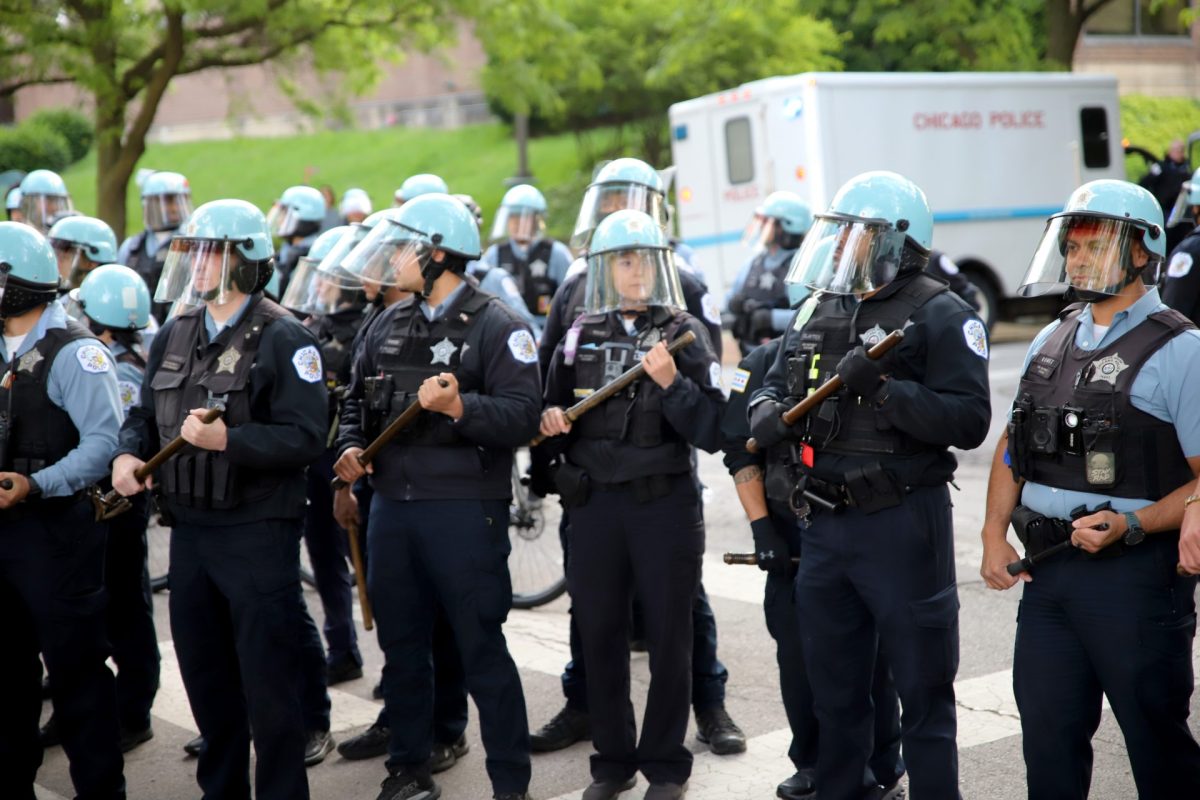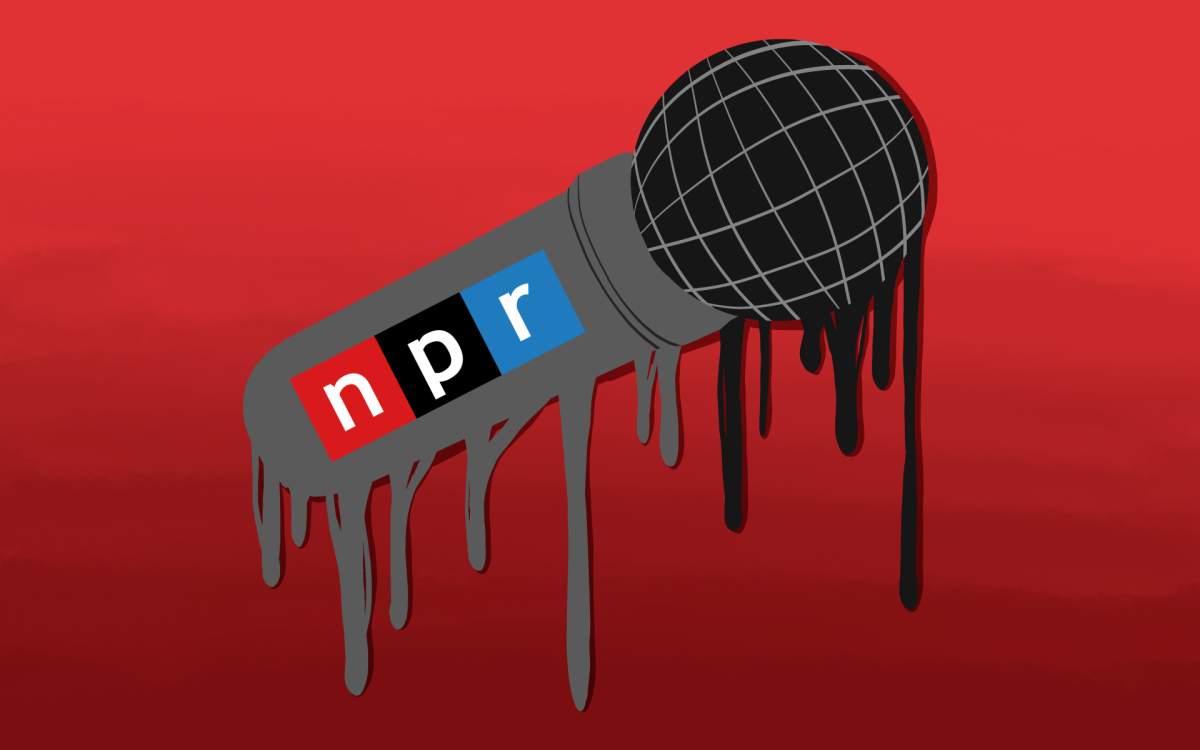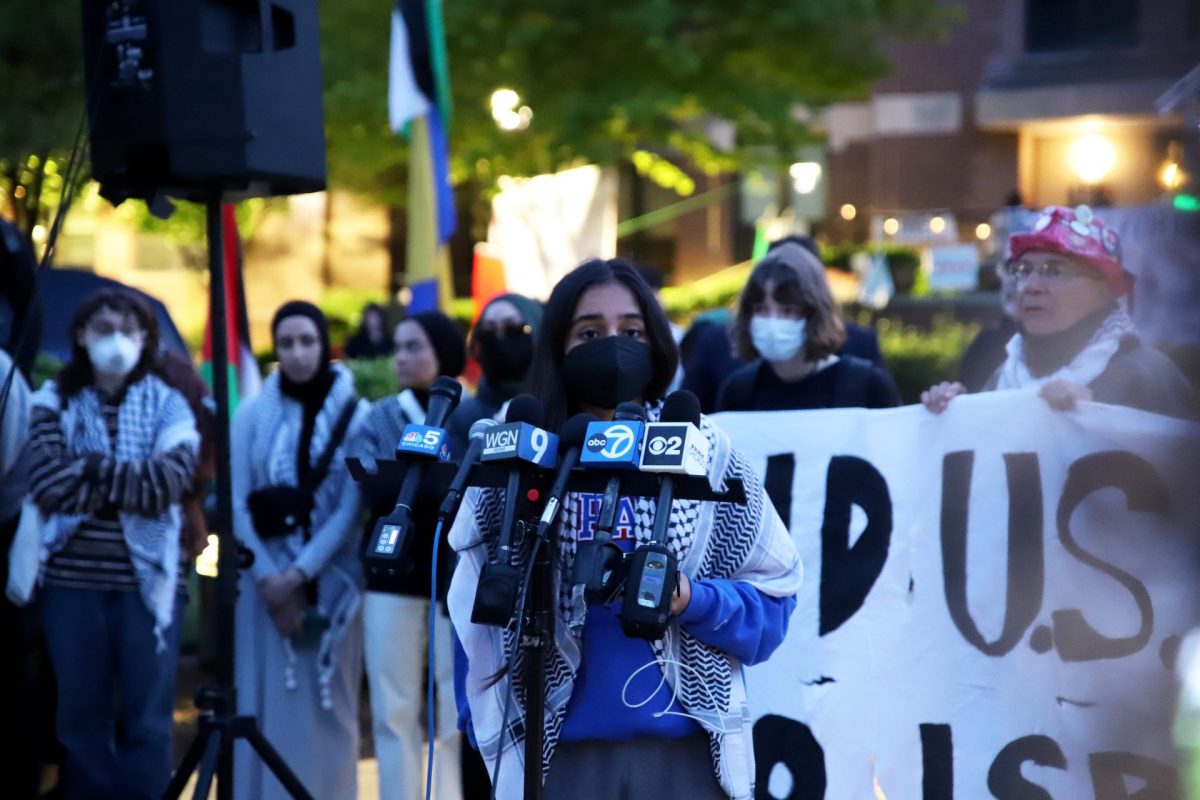Six DePaul students watched Eric Mata as he drew the inescapable “Man Box” on a blackboard, symbolic of the messages that constrain the definition of manliness and men’s treatment of women. Under the list of common messages are “Gettin’ girls = sexual conquest” and “Sharing emotions = weak, girly.” Beneath all these messages is an arrow drawn towards “Rape Culture,” underlined in thick, white chalk.
Mata, assistant director in the Office of Multicultural Student Success, helped direct “When Yes Means No: A Conversation with Men about Consent,” one of the 17 events on campus this month that addressed the issue of sexual assault.
April is Sexual Assault Awareness Month (SAAM), and DePaul is one of the many organizations to join the nationwide effort. Events this month are organized around the theme of consent – what it means to give consent, how men and women interpret consent and what factors inhibit one’s ability to give or perceive consent.
Rima Shah, a coordinator in DePaul’s Office of Sexual Health & Violence Prevention, organized SAAM for the second time since joining DePaul’s staff in February of 2012. Earlier this year, a committee composed of 24 campus departments and student organizations and seven community organizations met to discuss the issues revolving around sexual assault on campus. “All the events were created based on expressed student needs,” said Shah.
SAAM is recognized across the country, especially as sexual assault remains one of the most common violent crimes committed on college campuses, said Shah. According to Shah, 1 in 4 women in college will experience an attempt or a completed sexual assault, while 6-11 percent of all reported sexual assaults target male victims. Shah said that SAAM at DePaul demonstrates the university’s commitment to the cause and allows departments, student organizations and community partners to rally together to empower students against the pandemic.
DePaul has faced scrutiny in the past for its lack of sexual health promotion, but Shah said that SAAM has nothing to do with the university’s poor sexual health rating. “(SAAM) underlines DePaul’s Catholic, Vincentian Mission that brings sensitivity to and care for the needs of those served, so critical to effectively working with survivors,” said Shah.
For Shah, the month thus far has been a success. “I wouldn’t change anything, except perhaps trying to mobilize more resources for marketing of the individual events,” she said. Mata, who directed his discussion toward male students, admitted that low attendance of the events is an ongoing problem for the university.
“When there are programs that are happening that are educational in nature, we don’t get a lot of people,” said Mata. “My hope is that folks like the ones who are here are going back and talking with their friends, and starting to create a culture of interruption where they see something that’s problematic and they say something.”
Gracie Simonett, a sophomore residence advisor, found events for SAAM helpful in understanding consent and sexual abuse, but to an extent they’re like “preaching to the choir,” she said. Simonett worried that many of the people who attend the events are those who are interested and may already know something about sexual assault.
“Everyone should get this information,” said Simonett. “I definitely think there should be more of a requirement for all students . . . (to learn about) sexual health and sexual violence.” Senior Phil Mannella was outspoken in Mata’s discussion about men and consent. “The whole topic of masculinity, and sex, and consent is something that I’ve just become aware of this year,” said Mannella. “That’s something that was very eye-opening to me.”
Next year Mannella will work with Michigan State University in their sexual assault prevention program and hopes to change the way college students think about sex and consent. “Not everyone’s going to be receptive at first,” said Mannella, “but the more and more you’re able to get people to talk about it, it becomes less of a topic that people will avoid.”







